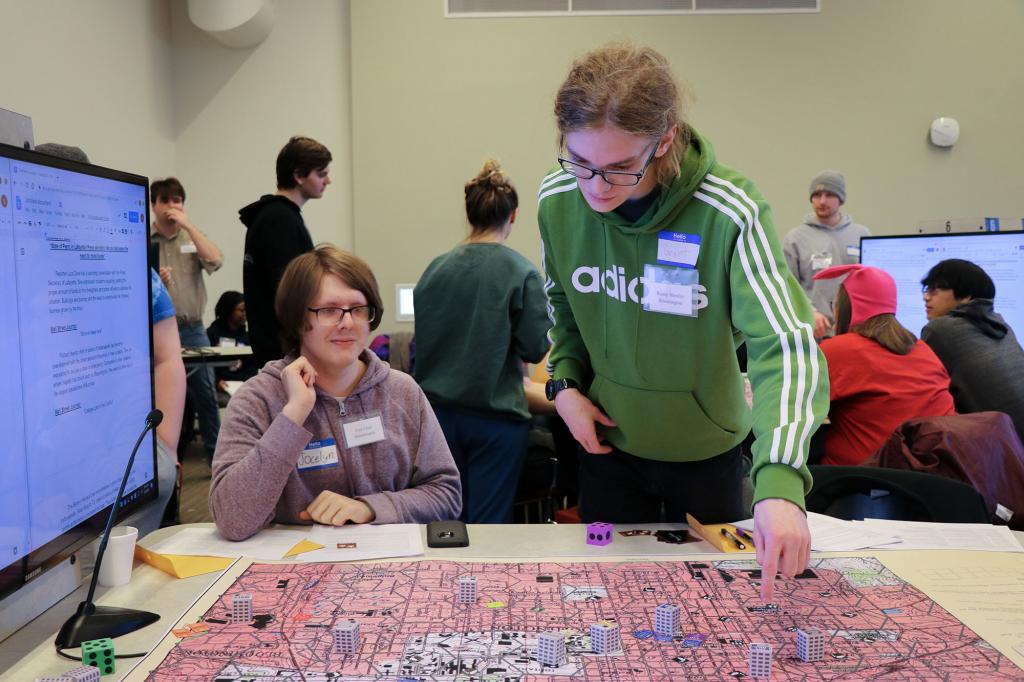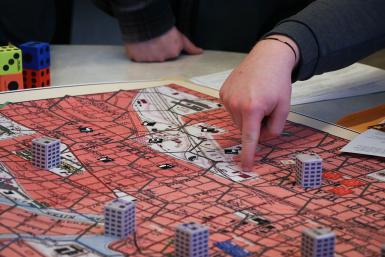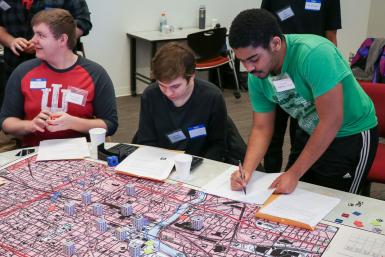Megagame simulates large-scale viral outbreak

A viral outbreak is unleashing a swarm of vicious killer bunnies onto the world, and local and federal governments, the military and health care organizations are working together to try to contain it.

That’s the premise of “VIRUS: Bunny Apocalypse,” a 100-player megagame developed by professor Ted Castronova for his Introduction to Games class. An emerging form of play, megagames — large-scale simulations — are difficult to pull off. IU is the only university in the world running megagames, Castronova said.
“There’s probably been fewer than 100 of these megagames done anywhere in the world so far,” he said.
Castronova’s 96 students gathered for six hours in the Student Building on Feb. 29 to play “VIRUS.” The game’s underlying mechanics are all about disaster response in the case of a powerful virus — such as, for example, the coronavirus.
“The game is fun but has very serious real-world implications,” Castronova said.
Players acted as mayors, police chiefs, fire chiefs, EMTs, journalists, governors, the president, the Army, the Centers for Disease Control and Prevention and FEMA.
“The way the game is set up, I tried to model as accurately as I could who was going to have to talk to who to get what done,” Castronova said.
For example, if a city needed money to operate more ambulances and hospitals, the mayor would have to talk to a member of FEMA, who would need the president to approve the funding.
This collaborative aspect was something that stood out to senior Kyle Norlander, who has participated in two iterations of Castronova’s megagame.

“Getting nearly 100 students to operate as a cohesive unit is truly a marvel,” Norlander said. “My favorite part of the experience was seeing students who normally wouldn’t interact during class hours breaking those barriers and really immersing themselves in the megagame experience.”
Castronova said his favorite part of running the game is the chaos. It’s caused in part by a concept called game vertigo, which is the sense of confusion people feel when playing a new game for the first time.
“It’s so much fun to watch the chaos turn into order, the game vertigo lift from this group of people,” he said.
The game stresses communication, and players must work together to contain the virus.
“The main thing we learned was system shock,” Castronova said. “It requires lots of communication to handle these things. IU’s measures to shut down classes came about because leadership was quickly informed of what to do. This is also a main takeaway of our game.”

